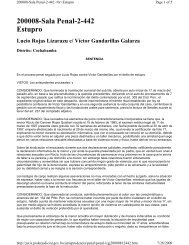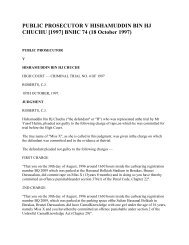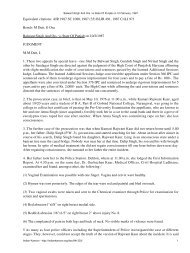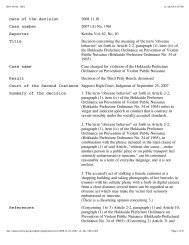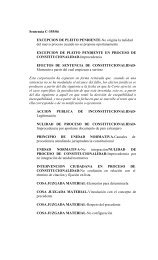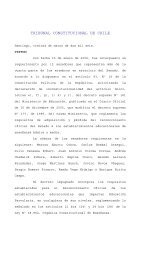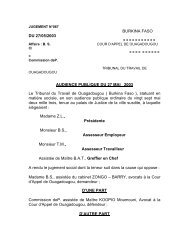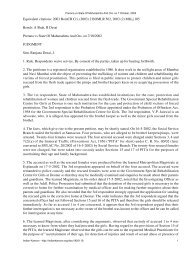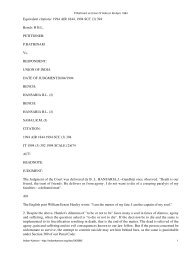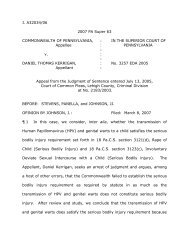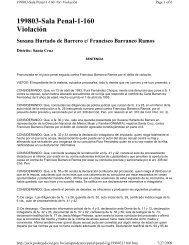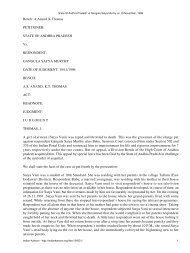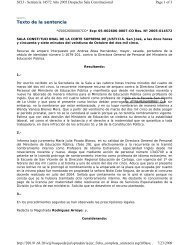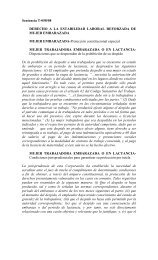CONSTITUTIONAL COURT OF SOUTH AFRICA Case CCT ... - saflii
CONSTITUTIONAL COURT OF SOUTH AFRICA Case CCT ... - saflii
CONSTITUTIONAL COURT OF SOUTH AFRICA Case CCT ... - saflii
You also want an ePaper? Increase the reach of your titles
YUMPU automatically turns print PDFs into web optimized ePapers that Google loves.
ACKERMANN AND GOLDSTONE JJAppeal 56 which have particular expertise and experience in this area of the law and, onthe other hand, this Court. Not only must the common law be developed in a waywhich meets the section 39(2) objectives, but it must be done in a way mostappropriate for the development of the common law within its own paradigm.[56] There are notionally different ways to develop the common-law under section39(2) of the Constitution, all of which might be consistent with its provisions. Not allwould necessarily be equally beneficial for the common law. 57Before the advent ofthe IC, the refashioning of the common law in this area entailed “policy decisions andvalue judgments” 58which had to “reflect the wishes, often unspoken, and theperceptions, often but dimly discerned, of the people.” 59A balance had to be struckbetween the interests of the parties and the conflicting interests of the communityaccording to what “the [c]ourt conceives to be society’s notions of what justice56It is unnecessary for purposes of this case to consider the position of the magistrates’ and other courts.57The way English law approaches the development of the common law in this context is illustrated by,for example, the decisions in Home Office v Dorset Yacht Co. Ltd [1970] AC 1004 (HL); Hill v Chief Constableof West Yorkshire above n 34; Barrett v Enfield London Borough Council above n 35; and Lancashire CountyCouncil and another v A (a child) [2000] AC 147 (HL). By contrast the development of the private law inGermany in the present context is through the indirect horizontal operation of the German Basic Law on privatelegal relationships. This so-called “radiating effect” of the Basic Law operates through the “general clauses” ofthe German Civil Code, such as clauses which refer to “good morals,” “justified,” “wrongful,” “contra bonosmores,” “good faith” and so forth; and could even operate in respect of private law rules which are unclear (seeDu Plessis and Others v De Klerk and Another, above n 15 at paras 39-40; 93-94; 103-05 and the authoritiesreferred to therein).58Minister of Law and Order v Kadir, above n 27 at 318E.59Id at 318F, quoting with approval from Corbett “Aspects of the Role of Policy in the Evolution of ourCommon Law” (1987) 104 SALJ 52 at 67.34



